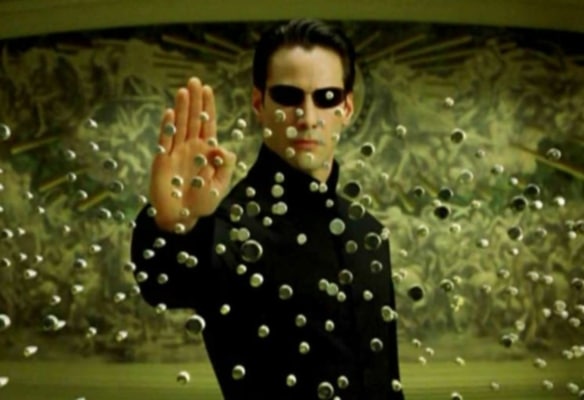The hit sci-fi Warner Bros. movie franchise beginning with The Matrix popularized the concept of living in a digital simulation. Now a scientist has published his own “evidence” that we could also be living in one such simulation: a real-life Matrix.
The “evidence” was featured in a paper published earlier this month by AIP Publishing. It was penned by physicist Melvin Vopson, of the University of Portsmouth. The real-life Matrix theory he proposes is otherwise known as the simulation hypothesis.
Essentially, the hypothesis claims that we’re living in a world just like the one Keanu Reeves experiences in The Matrix. Essentially one very advanced illusion powered by virtual reality. The theory, Vopson notes, is “gaining traction in scientific circles as well as in the entertainment industry.”
The theory also ties in with recent developments in another branch of science, known as “information physics,” which “appear to support this possibility.”
The “information physics” branch claims that physical reality is actually made up of bits of information. These bits of information are believed by Vopson to have a physical mass, and furthermore, a building block for our entire universe. In fact, it could even be the meaning behind dark matter.
This then ties into his discovery of a new law of physics, known as the second law of infodynamics. This law states that “the information entropy of systems containing information states must remain constant or decrease over time, reaching a certain minimum value at equilibrium.”
This law indicates a vast amount of symmetry in the universe, for which he notes the following:
“My findings demonstrate that high symmetry corresponds to the lowest information entropy state, potentially explaining nature’s inclination towards it.”
In other words, this means that nature prefers things to be organized and orderly. As he continues:
“This approach, where excess information is removed, resembles the process of a computer deleting or compressing waste code to save storage space and optimise power consumption.”
Thus it does support the simulation hypothesis. Of course, Dr. Melvin Vopson is continuing to research this scientific phenomenon with a number of experiments and other attempts to better understand these possibilities.

